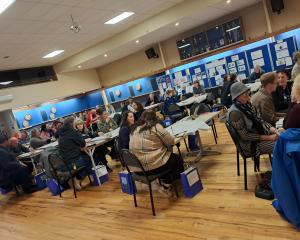
Euthanasia is a complex issue, an emotional one. We all have had an experience where we thought there was too much suffering; that death would be easier. Our hearts break when we see the suffering of those we love and we want to be able to ease it. This is a topic that is dear to many peoples’ hearts, and there are precious stories behind all these people. As an NZ Nurse with experience working alongside a fantastic palliative care team, I’d like to shine a little more light on this important issue as we vote in the upcoming referendum.
People often talk about dying well, or dying with dignity. It’s an interesting concept. Is it possible to die with dignity? Perhaps that depends on how you define dignity. Just as birth is a messy yet beautiful process, so too, I think, is death. Perhaps there isn’t always dignity in all the aspects of how we use this word, but there can be peace and acceptance. And it can most certainly be pain-free. And all of this can happen without euthanasia.
But I know that may not be what you have heard or experienced. I have listened to stories from bereaved family members stating their loved ones had the best palliative care: their nurses or medical team were kind and caring, and they could not fault them; but that their loved one still suffered unbearably. Let me stop you here: that is not the best palliative care. That is not even good palliative care! There are many different approaches to palliative care and many different remedies which can be offered, and I have heard plenty of stories where what I know could have been offered has not been, or has been offered much too late in the game. I’ve even seen this happen in my family.
Most of us would agree that palliative care is a very important part of healthcare, but then why is it not fully government funded across New Zealand? The Health Select Committee’s 2017 report shows that some parts of New Zealand have shortages in palliative care specialists, and that accessing palliative care services is not easy for all New Zealanders, especially in rural and provincial areas.
Palliative care is usually administered by general health workers most of the time, with specialist only available when ‘needed’. The problem is that different health workers will call on a specialist at different stages based on their own interpretation of ‘neediness’. This means that aspects of care such as pain relief can be managed very differently from case to case. We must understand that palliative care is not something that every health worker is equipped to do, not only physically and mentally, but also emotionally and spiritually. Yet it is an expected part of their job for which they have at times had very minimal training. We also have an aging and shrinking palliative care workforce with 56% of the workforce forecast to be over 65 this year, despite the need for these services being forecast to increase 51% by 2038.
We have so much more to learn about palliative care. We have so much more we could offer rather than giving a lethal injection. Palliative care approaches should start much earlier in a person’s health journey. For example, administration of life-prolonging medication: why are we trying to prevent a stroke with aspirin when someone has have already lost most of their capacities? This should be our first step into asking about and acknowledging a person’s readiness to die, and I believe a much more natural and healthy way to let them go, rather than injecting them with a lethal dose.
I can also envisage a lot of patients in Aged Care facilities choosing euthanasia, but wrongly out of a feeling of being a burden to others, or simply loneliness. I do not for one minute believe their lives are worthless. I would love to see government initiated ideas about breathing life into these facilities, instead of giving them the bare minimal monetary amount they need to get by. And I believe it’s our nation’s responsibility to look after the elderly well, as they worked hard to give us the beautiful country we live in, and have faithfully paid taxes to our country all their lives.
I’m proposing that instead of Government funding (our tax money) going towards taking life, it goes towards earlier intervention and nationwide equal access to world class palliative care. That as a country we learn how to come alongside those who are suffering and give them reassurance that we do understand, and we can help in a meaningful way instead of covering every symptom up with another medication. True health and wellbeing encompasses all aspects of a person – their physical, mental, emotional and spiritual health. Great palliative care seeks to bring peace to each of these areas of someone’s life. Therefore if we have great palliative care, where is the need for euthanasia?
- Nicole van den Engel is an NZ Registered Nurse currently volunteer nursing in the Philippines, where she now lives with her husband and two children. She has experience across community health settings, including palliative care and aged care, in New Zealand and Australia.
Comments
van den Engel makes an interesting point.
However I say you can have improved palliative care AND the choice. One does not do away with the other and to suggest that it might is simply naive mischievousness.
Whilst the individuals within the medical profession have every right to their views they also have a duty of care not to try and sway citizens thought processes with blatant emotional blackmail. It's unprofessional and improper.
My advice is that she should mind her own business. My right to choose doesn't abrogate your right not to choose. On the other hand your would deny me the right to choose, because of your personal prejudices, in an instant.
Vote Yes to choice.












